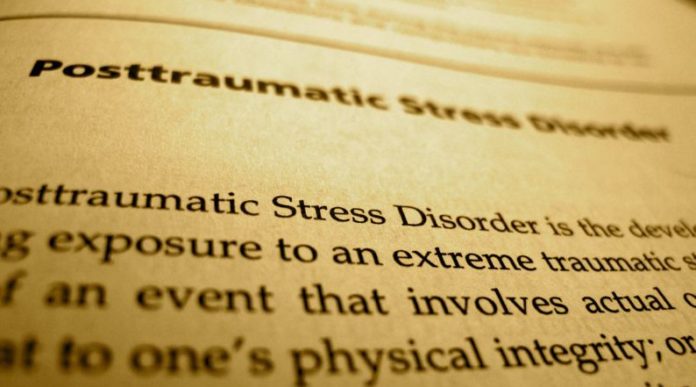
Transient ischemic attacks (TIAs), commonly referred to as “mini-strokes,” are serious vascular events that serve as a warning sign for future stroke risk. While TIA’s can lead to short-term complications, they are not generally thought to cause lasting damage.
Now, a new study has found that nearly one-third (30%) of patients who have transient ischemic attacks go on to develop the symptoms of post-traumatic stress disorder (PTSD), suggesting that the effects of so-called “mini-strokes” may be far more profound than previously thought.
“We found 1 in 3 TIA patients develop PTSD,” says study author Dr. Kathrin Utz from the University of Erlangen-Nuremberg, Germany. “PTSD, which is perhaps better known as a problem found in survivors of war zones and natural disasters, can develop when a person experiences a frightening event that poses a serious threat.”
TIAs occur when the flow of blood to the brain is disrupted temporarily, often by blood clots or other debris. They differ from major strokes in that the flow of blood is only blocked for a relatively short time – usually no more than 5 minutes.
Although they only disrupt blood flow temporarily, TIAs are often called ‘warning strokes’ because they signal the presence of a partially blocked artery or a clot source in the heart, both of which are risk factors for stroke. According to the Centers for Disease Control and Prevention (CDC), between 10-15% of people with TIA will experience a major stroke within 3 months.
Earlier studies have shown that PTSD is more common in people who have had a full-blown stroke, even if they experience minimal long-term effects. Stroke patients also are more likely to be depressed and have lower quality of life. The new study, published in the American Heart Association journal, Stroke, is the first to examine whether the increased risk of future stroke among patients with TIA is associated with the development of psychiatric disorders.
A ‘significant psychological burden’
For the study, 108 TIA patients with no previous history of major stroke were asked to complete a series of questionnaires, which included items inquiring about patients’ mental and physical health status.
The researchers found that about 30% of the TIA patients reported symptoms of PTSD and 14% showed signs of a significantly reduced mental quality of life. Around 6.5% of the participants also had a reduced physical quality of life. TIA patients who showed signs of PTSD were also more likely to show signs of depression, anxiety, and a lower overall quality of life than those who did not.
Their findings illustrate that experiencing a TIA – which does not normally cause permanent injury to the brain – can be just as traumatic to the individual as events such as surviving a combat injury or being a crime victim.
The researchers believe that the development of PTSD could be due to fears of having a major stroke and poor coping behaviors following a TIA. “While their fear is partly justified,” says Dr. Utz, “many patients may be overestimating their risk and increasing their chances of developing PTSD.”
When experienced together, the symptoms from TIA and depression “pose a significant psychological burden on the affected patient,” says Dr. Utz. Therefore, she says, “it came as no surprise that we also found TIA patients with PTSD have a measurably lower sense of quality of life.”
Positive adaptive strategies recommended
The patient’s response to the TIA has also been identified by the authors as a potential determinant of whether or not the patient develops PTSD. Dr. Utz suggests that certain coping strategies, such as denying the problem or blaming oneself, could increase the risk of PTSD.
“It is not yet entirely clear why some people develop PTSD following a TIA, but others do not,” she says. “However, what we do know at this stage is that younger patients and patients who in general find it difficult to cope with stress are more likely to develop psychological problems following a TIA.”
Dr. Utz offers positive adaptive strategies and risk counseling as measures that could help reduce the likelihood of PTSD developing in these patients. The CDC has also published advice for coping with a traumatic event, which includes the following recommendations:
- Understand that any symptoms being experienced may be normal, particularly following a traumatic event.
- Try to stick to a usual routine.
- Find ways to relax and participate in leisure activities.
- Find support with friends, family or religious leaders. Share experiences and feelings with them.
- Recognize that not everything in life can be controlled.
While around one third of people who have TIAs go on to have major strokes, and research shows that psychological stress can also increase the risk of stroke, it is important to recognize that TIAs are warning signs, and that patients do have time to act to reduce the risk of having a major stroke.
